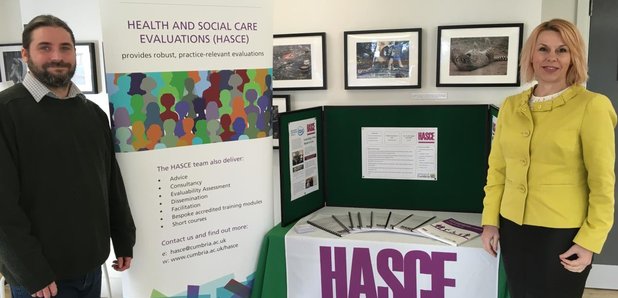UoC To Research Catching Cancer Early
11 February 2019, 06:07 | Updated: 11 February 2019, 08:15

The University of Cumbria's going to do some research into how to catch cancer early.
It's got a £50,000 grant to find new ways of diagnosing cancer quickly, from symptoms that aren't clear.
It's called the "Vague Symptoms Pathways Project" - it follows a model in Denmark where there are one-stop-shops to test people who doctors are concerned might have the disease.
Senior research fellow Vicki Goodwin and Dr Tom Grimwood lead HASCE, the university’s specialist unit for commissioned research in health and social care.
Dr Grimwood said: “Typically patients who present to GPs with symptoms that could be cancer may get sent for one test, then back to the GP, then for another test, back to the GP and so on. Using a model first developed in Denmark, the Vague Symptoms Pathways project is piloting a one-stop-shop for tests, using multi-disciplinary teams to identify signs of cancer earlier.
“We will be carrying out quantitative and qualitative research into these new pathways, looking at what works, for who, and why. Our work will cover three areas – Sunderland, South Tyneside and South Tees; Cumbria, Northumberland and Newcastle; and Durham and Gateshead.”
Vicki added: “This is our second research project with the NCA. We have an ongoing project for the ‘Early Diagnosis Transformation Programme’ which aims to improve the early diagnosis strategies which aim to improve survival rates and patient outcomes.
“We are thrilled to be working once again with the National Cancer Alliance and partners across the north of England on this significant work that will inform national research and policymakers.”
Alison Hampson is head of the Department of Health, Psychology and Social Studies at the university, which includes the HASCE research operation.
She said: “HASCE’s research will feed into a national research project led by NHS England, Cancer Research UK and Macmillan Cancer Support.
“As such it will provide the creation of knowledge that is both of critical importance to communities and clinicians, and of national significance in terms of devising future approaches to improving outcomes for cancer patients.”






















